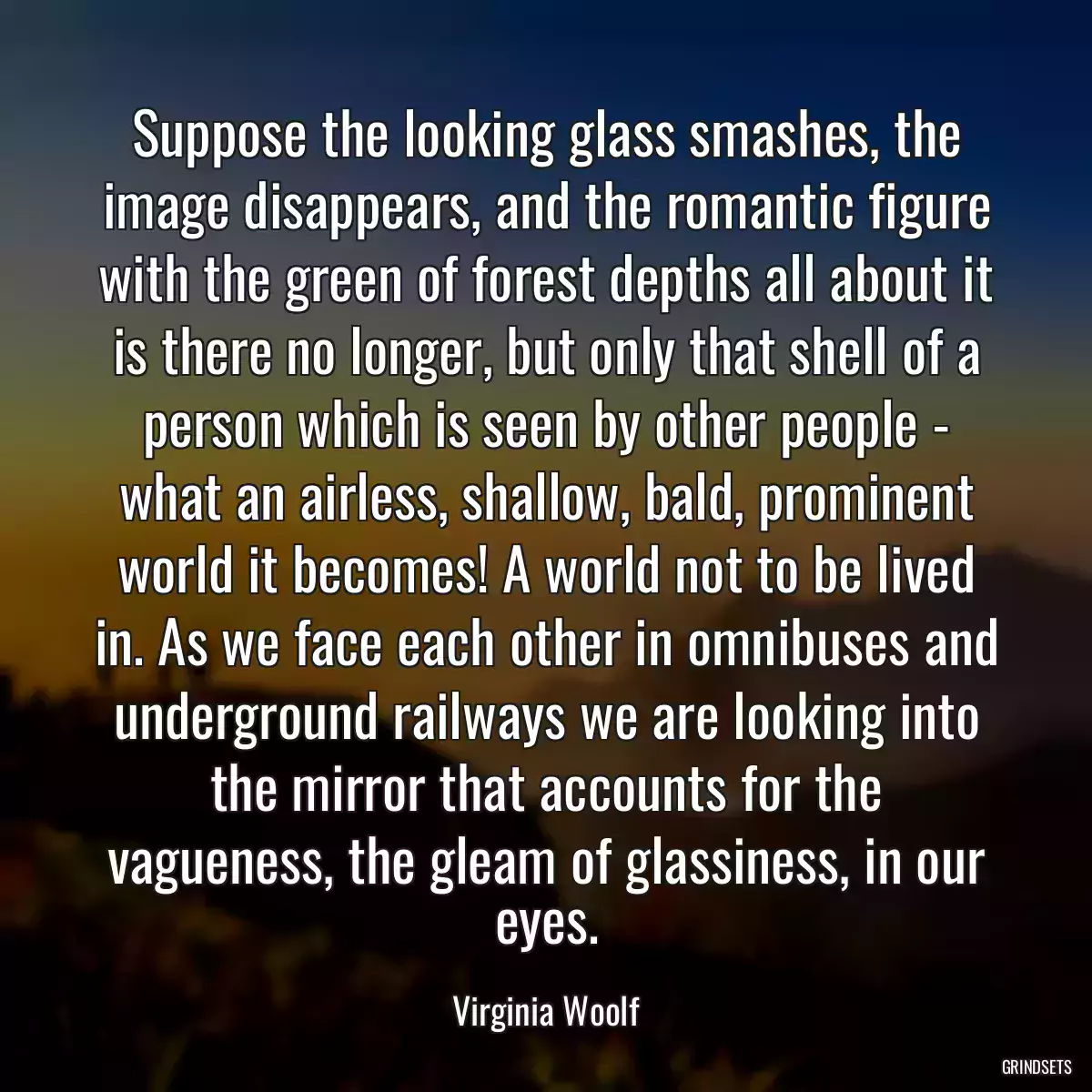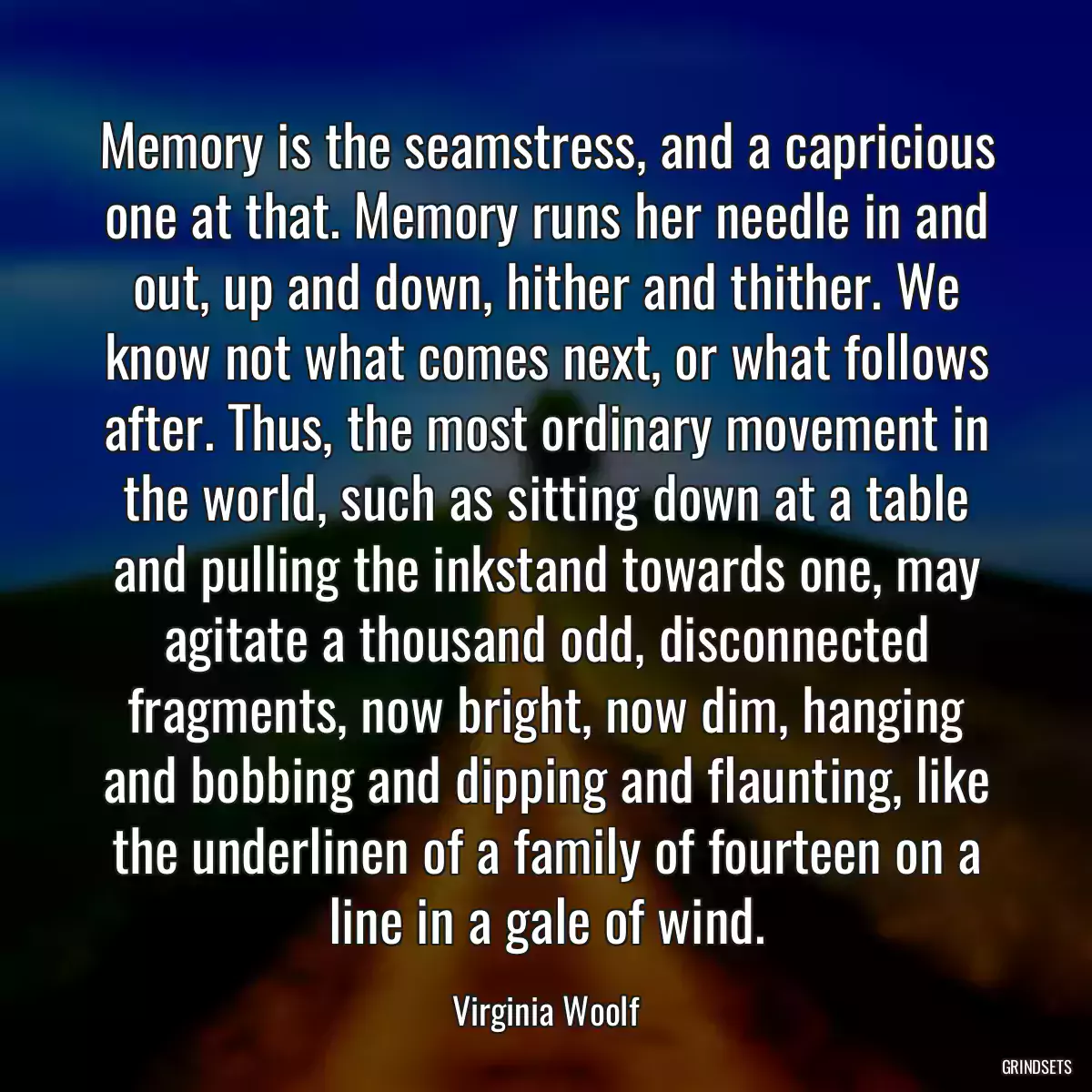
Suppose the looking glass smashes, the image disappears, and the romantic figure with the green of forest depths all about it is there no longer, but only that shell of a person which is seen by other people - what an airless, shallow, bald, prominent world it becomes! A world not to be lived in. As we face each other in omnibuses and underground railways we are looking into the mirror that accounts for the vagueness, the gleam of glassiness, in our eyes.

